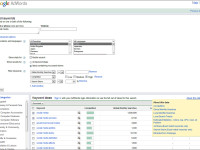Hubert Lacroix, the president of the CBC, recently placed the future of the Canada’s national public broadcaster on the electoral map with comments aimed sparking a renewed debate on future funding models. Lacroix disputed claims that low ratings are to blame for the CBC’s financial struggles, instead pointing to the need to consider alternative fee schemes, including new levies on Internet providers or supplementary charges on television purchases.
While disagreement over CBC funding is as old as the broadcaster itself, the more uncomfortable discussion for the CBC is its coverage of the current election campaign – particularly its approach to national debates and political party advertising – which raises troubling questions about its relevance in the current media environment.
My weekly technology law column (Toronto Star version, homepage version) suggests that most would agree that the CBC features an excellent group of reporters and boasts insightful analysts for its panel discussions. However, rather than working to make itself an invaluable resource for the election, the CBC has been unnecessarily restrictive in its broadcasting choices and in the use of its content.











